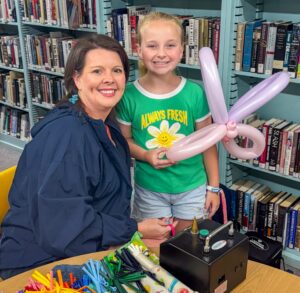Resuscitating your financial resolutions
FRANKLIN LIVING—
If you’re like most, January goal setting seems like a lifetime ago. Our entire society has undergone an extraordinary upheaval – and right along with it went a lot of our 2020 BIG plans.
For me, the first three months of the year, I spent saving financially and working out physically for a dream vacation – one that involved climbing my first 14-footer (mountain), scaling a via ferrata and conquering the Manitou Incline. After returning from a conference mid-March, however, my world – like everyone else’s – came to a screeching halt.
Since bankers are “essential,” our work didn’t stop or slow down – quite the opposite – but everything else did. I stopped training for my 14-footer. My painstaking saving quickly gave way to more take out than usual because of longer work hours, online shopping – which I like to refer to as “blame it on quarantine purchasing” – and many other out-of-the-ordinary habits.
Now that the dust is starting to settle somewhat and we’re dipping over the mid-point of the year, it’s time to resuscitate what’s left of our 2020.
As I’m thinking on this, I keep looking for my “why” on certain goals. I think that is the most important step we can take to getting things back on track. Properly establishing why we are doing something makes a challenge easier to tackle. Basically, the “why” is what it means to you at the end of the tunnel.
Our futures are not governed by our pasts, although sometimes it feels that way. We have the ability at any point to pivot and change directions entirely. The following are tips to establishing your “why”:
- • Make a list of what’s important to you. It’s best to do this quickly without limiting yourself by overthinking it. It’s your list – it’s a judgement-free zone.
- • Identify why it’s important. Take a look at what’s on your list and spell out why these points are important to you.
- • Find the value in each of your answers to you to help set your goals.
Everyone’s goals, financial and otherwise, are different. Taking some time to analyze that can do us all some good. The main thing to remember is, in the same way you might detox your diet, sometimes we must detox our spending habits. It doesn’t happen overnight, and that is totally OK.
Create your roadmap with checkpoints along the way so you can see your progress. Roadmaps, like life, also have detours. As we work toward goals new and old, they tend to change along the way, and that can be the best part.
ESTABLISHING YOUR “WHY”
A quick example
- What’s important to me: my home
- Why it’s important: safe shelter for me and my daughter
- Value: safety and excitement to possibly build a new home one day
- Goal: continue saving toward a future home build
Emily Mays is vice president/senior marketing director at Community Spirit Bank in Red Bay, working in finance for 14 years. She is an enthusiastic social media marketer, financial literacy advocate and go local supporter. She lives in East Franklin and has one daughter, Lola.








